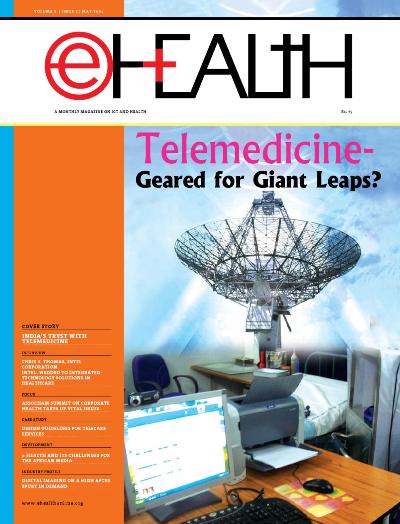The ongoing demographical and social changes in most European countries, which include low death rates and high longevity among other things, have some ramifications from the medical point of view as well. Over-ageing, increasing number of single households, decreasing age of chronically disabled people, will result in a dramatic increase in emergency situations and missions in Europe, within the next few years.
Already today, 44 percent of emergency medical services (EMS) system resources are dedicated to patients over 70 years. On the downside, this will result in higher costs for the EMS, which already have to cope with cost restrictions today, and in substantially diminished service quality, or, in all probability, in both of these. Unfortunately, a high quality and affordable EMS in case of an emergency medical assistance has emerged as an essential prerequisite for the independent life of elderly people in their preferred environment.

Delayed calls of emergency medical services – in case of physical or mental disorders resulting from strokes or falls, for examplelead to increased incidence of hospitalization among elderly people. This greatly diminishes their quality of life and escalate their costs on health.
The European Microsoft Innovation Center (EMIC) is starting the project EMERGE(Emergency Monitoring and Prevention), which has the aim of supporting elderly people with innovative emergency monitoring and prevention. Here it deserves a mention that the European Microsoft Innovation Center (EMIC) in Aachen, Germany is one of the Microsoft facilities dedicated to research and development in Europe. It is unique to Microsoft in its focus on collaborative applied research, and its goal of contributing to European Commission and other public-sector research programmes. It focuses its activities on security, mobile technologies, and web services.
 The goal of EMERGE is to improve emergency assistance through early detection and proactive prevention, as well as unobtrusive sensing. The project’s objectives are to identify and model the most promising application scenarios for integrated emergency assistance, transfer the emergency model into an application design, identify and engineer suitable ambient information technology, engineer an adequate system architecture and platform, and validate the models and the engineered system in laboratory models and field trials. Besides European Microsoft Innovation Center(EMIC) the other project partners are Fraunhofer IESE, Siemens Corporate Technology, Westpfalz Klinikum, e-ISOTIS, Bay Zoltan, Art of Technology, National Research Centre Demokritos, and Medical University of Graz. The project, which commenced in February 2007, is scheduled to be completed by 31 October 2009.
The goal of EMERGE is to improve emergency assistance through early detection and proactive prevention, as well as unobtrusive sensing. The project’s objectives are to identify and model the most promising application scenarios for integrated emergency assistance, transfer the emergency model into an application design, identify and engineer suitable ambient information technology, engineer an adequate system architecture and platform, and validate the models and the engineered system in laboratory models and field trials. Besides European Microsoft Innovation Center(EMIC) the other project partners are Fraunhofer IESE, Siemens Corporate Technology, Westpfalz Klinikum, e-ISOTIS, Bay Zoltan, Art of Technology, National Research Centre Demokritos, and Medical University of Graz. The project, which commenced in February 2007, is scheduled to be completed by 31 October 2009.

As a result of this EMERGE initiative, quality of life for elderly people is likely to improve, and costs for emergency medical services(EMS) can be leveraged for the elderly as well as for society. The main innovation of EMERGE is to provide a model for recurring behaviours and experiences of elderly people following a holistic approach, in order to detect deviations from their typical behaviour and to reason on acute disorders in their health condition.
This problem is addressed by the EMERGE project by supporting elderly people with innovative emergency monitoring and prevention. The innovation is to algorithm this behavior by a holistic approach to detect deviations from typical behaviour patterns and to reason on acute disorders in their health condition in case of strokes, falls, or other similar emergencies.
The approach is to use ambient and unobtrusive sensors to monitor activity, location, and vital data. Daily routine is tracked in order to detect abnormalities and to create early indicators for potentially arising emergencies.
EMERGE engineers a prototypical solution that treats emergencies with stepwise assistance. First, it provides early proactive assistance to the elderlies. Next, it integrates their friends, family, or caregivers. In case of an emergency that cannot be handled in the first two steps, an integrated emergency medical service (EMS) is called and informed about the case and the personal situation of the affected person. The integrated EMS can resolve the situation through medical care, telemedicine counselling, activation of social services, or sending a rescue team. The success of this project will lead to medical and technological guidelines for emergency monitoring and prevention for elderly people with ambient and unobtrusive sensors. It is expected that the success of this EMERGE project will have a positive impact on the standard operating procedures in medical science, where medical guidelines for diagnostics and therapeutical treatments are provided.
For more information visit: https://www.emerge-project.eu/
Be a part of Elets Collaborative Initiatives. Join Us for Upcoming Events and explore business opportunities. Like us on Facebook , connect with us on LinkedIn and follow us on Twitter , Instagram.



